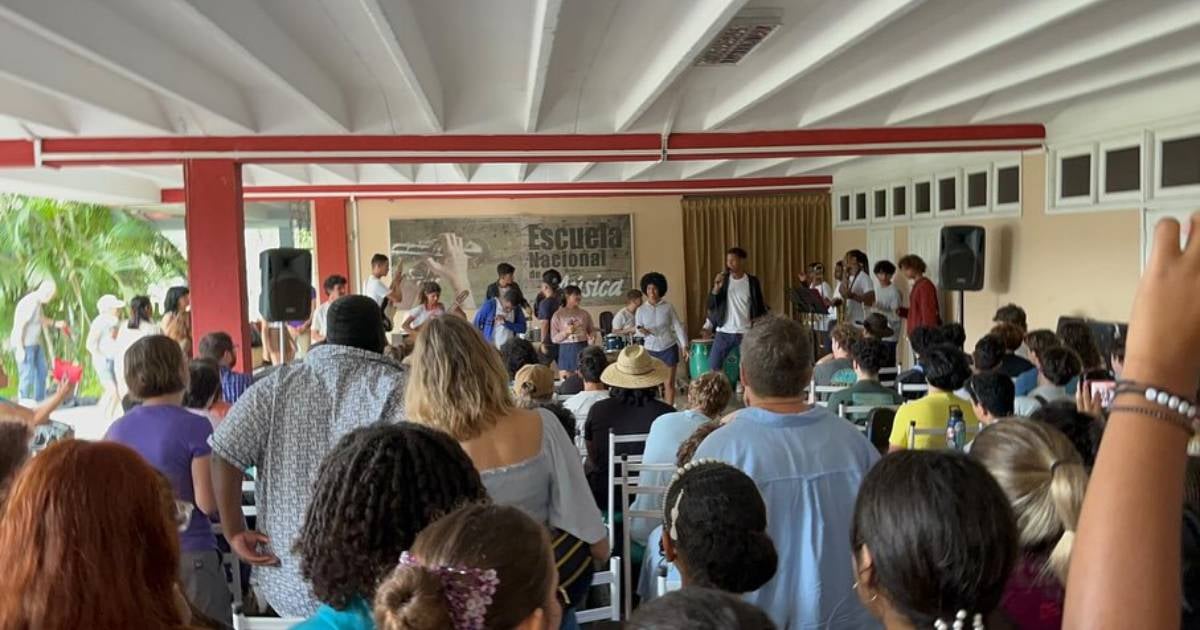A group of students from Cuba's National School of Art (ENA) was unable to participate in a much-anticipated cultural exchange with students from Berkeley High School (BHS) in California after their visa applications to enter the United States were denied. According to a report by The Berkeley High Jacket, the BHS student newspaper, this exchange was part of a long-standing project allowing jazz program students from BHS to travel to Cuba to engage and collaborate with their ENA counterparts.
This year, the plan was for the Cuban students to reciprocate the visit and experience life in the United States. However, despite months of meticulous preparation, the visa applications were rejected, dashing hopes for the reunion. The jazz community at BHS was deeply disappointed by this setback. "It's disheartening because it might be a long time before they can come here due to political conflicts," expressed Nicolás Hernández, a senior student and bassist at the school.
Impact of U.S. Immigration Policies
Sarah Cline, the director of the Jazz program at BHS, attributed the situation to the immigration policies instated by the Trump administration. She highlighted that in January 2025, a new travel ban was enacted that included Cuba among the countries entirely restricted, effectively barring all travel from the island. Moreover, since 2019, the validity of B-2 visas for Cuban nationals had been reduced to just three months, significantly complicating the process.
Reflections on Inequality
This decision also resonated emotionally with the American students, prompting reflections on the stark inequalities in international mobility. "In Cuba, they struggled to find a good bow for a violin or extra strings for a guitar, while we have incredible facilities here," noted Tanvi Kumar, a BHS student.
The frustration was even more pronounced given that in January 2024, BHS students had visited Cuba and were warmly received by ENA students. "Another incredible day in Cuba. Today we had lessons from the amazing ENA teachers and listened to the talented Cuban music students. Thank you, ENA, for an unforgettable day!" the American students shared, emphasizing the warmth of the reception and the significance of the musical exchange.
Efforts to Sustain Cultural Ties
During their visit, besides taking lessons and attending recitals with Cuban educators, the American students donated instruments, supports, and musical supplies to ENA, a gesture made possible through a community fundraising campaign. Despite this setback, the students and faculty at Berkeley expressed their commitment to maintaining the cultural and musical connection with their Cuban peers. "We learn so much from each other when we have the opportunity to be together," Cline stated.
Cultural and educational exchanges between the United States and Cuba have historically served as vital channels for fostering understanding between the two nations, although they have also been subject to bilateral political tensions. During the Obama administration, policies were enacted to ease academic and cultural exchanges. However, these were rolled back with the advent of Donald Trump's presidency in 2017, which imposed new restrictions. In 2019, the U.S. government revoked authorization for educational "people-to-people" travel, significantly curbing exchanges.
In 2021, the Biden administration prohibited U.S. government funds for educational and cultural exchange programs with Cuba due to concerns related to hiring Cuban medical missions. These restrictions have directly impacted specific initiatives. For instance, in April 2025, the U.S. Department of State thwarted a trip by Clark College's jazz band to Cuba, deeming it incompatible with current U.S. policy towards the island. Similarly, numerous visa applications across various categories have been suspended, affecting exchanges in culture, education, science, and sports.
Despite these hurdles, some cultural and academic exchange programs have managed to persist, albeit on a much smaller scale. For example, in March 2025, a group of students from Minnesota West and Normandale community colleges traveled to Cuba as part of an intercultural communication class. For a week, they explored key areas of Havana to learn about the island's history, culture, and daily life. However, such trips remain limited by the political climate and the Cuban government's official mediation.
Understanding U.S.-Cuba Cultural Exchanges
Why were the Cuban students' visa applications denied?
The visa applications were denied due to the restrictive immigration policies implemented by the Trump administration, which included a travel ban affecting Cuba.
How have U.S.-Cuba cultural exchanges been affected by political tensions?
Political tensions, particularly during the Trump administration, have led to increased restrictions on travel and visa issuance, significantly limiting cultural and educational exchanges.
What efforts have been made to continue cultural exchanges despite restrictions?
Some programs have managed to continue on a smaller scale, such as recent trips by community college students to Cuba for educational purposes, despite the challenging political environment.
